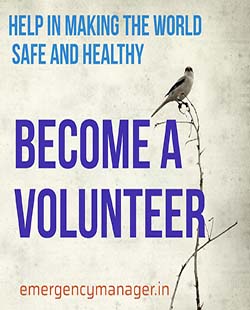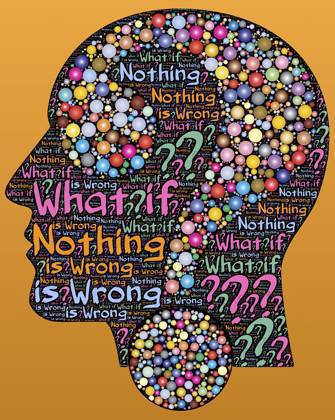

 Deepak Chopra, MD, FACP, FRCP
Deepak Chopra, MD, FACP, FRCP

Doing the right thing is an everyday expression of morality, which roughly translates into two parts: You know what the right thing is, and you follow through by doing it. Both parts are tricky. Knowing the right thing was much easier when people didn’t have freedom of choice but were told, in no uncertain terms, to obey the dictates of a religion, tribe, ideology, or absolute ruler.
Some places in the world are still hampered in this way, but even under the strictest moral code, people can say yes or no inside. Morality is personal and collective at the same time. This point is brought home in two shocking wars, the one incited by Russia in Ukraine, the other by Hamas against Israel. The Israeli situation is far harder on moral grounds, because there are horrors on both sides, innocent civilians killed in mass numbers, intractable religious views clashing with one another, and one’s personal allegiances to consider.
There are no ideal answers to doing the right thing, but before offering the answers that I can propose, the first step is to understand why people, and nations, don’t do the right thing but plunge instead into the very opposite.
If you look inside, you will see upon reflection that your sense of right and wrong is much more complicated than any quick response indicates. Avoiding a quick response is one of the first rules in moral thinking and acting.
If you are asked a morally loaded question such as “Do you approve of the death penalty?” or “How far should the right to own guns go?” or “Should parents physically punish their children?” Your mind draws upon a set of actors that are different for each person, largely depending on one’s time of life.
Young children are influenced first by family upbringing, then by teachers and schoolmates. Wrongs done to them sink deeply and leave strong impressions. Inner morality has just begun to develop.
Adolescents and immature adults are influenced by peer pressure, the desire to belong, a need to be right, and a rebellious streak usually marked by defiance of authority (“No one’s going to tell me what to do”). An inner sense of morality has formed but is confused, immature, and full of contradictions.
Mature adults think for themselves and make moral decisions based on inner values. They are aware of when they feel confused or conflicted. Outside forces still matter, but they are weighed according to their worth. The seriousness of making the right choice isn’t shrugged off. Being tolerant of opposing views is considered valuable and not a sign of weakness or indecision.
It isn’t hard to get people to agree to these broad distinctions, but there’s a tendency to judge others as morally inferior just because they happen to be in a different stage of moral development. After patience, the second rule for doing the right thing is to let others be. Like all rules, this is just a boundary line. Others are allowed to be who they are unless they cross the boundary into abuse, crime, violence, racism, etc.
There’s no replacement for being a mature adult, but it comes with a fly in the ointment. It is so much easier not to be mature. We’re all familiar with the easy behaviors that block doing the right thing.
· Wanting to make someone else wrong
· Wanting to win a disagreement at any cost
· Defending your ego
· Blaming others, pointing your finger
· Shooting from the hip
· Telling someone else what you think they want to hear
· Going along to get along
· Airing guilty or shameful opinions based on race, gender, religion, and politics
· Mistaking certainty and inflexibility as a mark of strength
· Giving in to pressure
This is hardly a complete list, but it applies well enough if you ask yourself about your behavior or the behavior of other people, not to mention whole groups, tribes, sects, and nations. Once you understand the roots of doing the wrong thing, it is easier to develop compassion and tolerance.
Yet there’s no getting around the fact that each of us has a complex life story that we keep on living, carried along today by the inertia of yesterday. We conform to our story far more than we conform to any single influence. As a result, the past is like a coral reef that keeps piling up new weight as the next experience is added to it.
If I think of the best strategy for doing the right thing, everything comes down to inner guidance, how to get it, how to trust it, and how to think for yourself. Consider that your awareness operates on various levels.
Level 1: Constant mental activity, including random thoughts, feelings, and impulses.
Level 2: Ingrained responses, automatic thinking, second-hand conditioning.
Level 3: Mature judgment.
Level 4: Deeper wisdom
You theoretically have access to each of these levels and can choose which one to live from moment to moment. Having deeper wisdom doesn’t exclude being spontaneous, acting on impulse every once in a while, and having fun, which are all Level 1 behaviors. But without actually paying attention to your level of awareness, there’s only so far you can dive toward deeper awareness.
People are instinctive about this, and they find the course of least resistance in staying at Levels 1 and 2. Countless people never become mature adults no matter how old they are. But the underlying assumption that becoming mature and reaching deeper wisdom is a hard task, suited only to the most dedicated and serious people, is wrong.
According to the Vedic tradition in India, we don’t hold our breath, as it were, to try and dive deeper. The very opposite is true. At every moment, deeper wisdom is sending each of us a message. The deepest values in human existence—love, compassion, insight, tolerance, creativity, empathy, spiritual experiences, and inner growth—seep up into our awareness every day from the deepest level. These values were not invented, nor can you receive them simply by becoming a morally mature adult.
Morality is ultimately founded on these deep impulses being received, noticed, and valued. That’s the answer to finding inner guidance, the only reliable way to know that you are doing the right thing. The right thing is in accordance with your deeper wisdom. Doing the wrong thing is founded on ignoring inner guidance or, saddest of all, not having any. Such knowledge is empowering, and it can achieve much more than any fixed morality or set of rules about acceptable behavior.
*******
DEEPAK CHOPRA MD, FACP, FRCP, founder of The Chopra Foundation, a non-profit entity for research on well-being and humanitarianism, and Chopra Global, a whole health company at the intersection of science and spirituality, is a world-renowned pioneer in integrative medicine and personal transformation. Chopra is a Clinical Professor of Family Medicine and Public Health at the University of California, San Diego, and serves as a senior scientist with Gallup Organization. He is the author of over 90 books translated into over forty-three languages, including numerous New York Times bestsellers. His 91st book, Total Meditation: Practices in Living the Awakened Life explores and reinterprets the physical, mental, emotional, relational, and spiritual benefits that the practice of meditation can bring. Chopra has been at the forefront of the meditation revolution for the last thirty years. His latest book, Living in the Light co-authored with Sarah Platt-Finger. TIME magazine has described Dr. Chopra as “one of the top 100 heroes and icons of the century.” www.deepakchopra.com